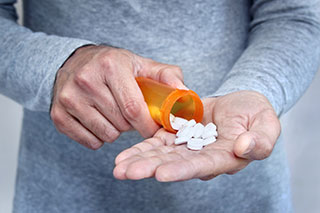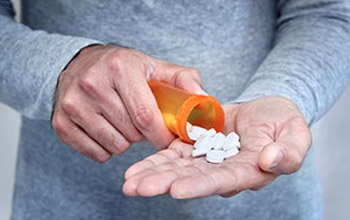 According to a 10-year study conducted by the U.S. Centers for Disease Control and Prevention, which analyzed about 512,000 patients that had undergone total hip replacement and over 1 million patients that had undergone total knee replacement, increased use of prescription opioids is one of the causes of opioid overdose related deaths in the US.
According to a 10-year study conducted by the U.S. Centers for Disease Control and Prevention, which analyzed about 512,000 patients that had undergone total hip replacement and over 1 million patients that had undergone total knee replacement, increased use of prescription opioids is one of the causes of opioid overdose related deaths in the US.
In 2016, more than 42,000 people died due to opioid overdose and 40% of those cases were related to prescription opioids. With opioid addiction reaching such epic proportions in the US, doctors are opting for a multimodal approach to pain management. The use of two or more pain control methods rather than just opioids alone after hip and knee surgery significantly reduces opioid-related risks, results in fewer respiratory or gastrointestinal complaints as well as shorter hospital stays.
What to expect after hip replacement:
With our multimodal pain management, we do not give any IV narcotics. You take the same medication in the hospital that you would take at home. This involved several different medications that work on different pain pathways and are non-opioid based. During the first 2 weeks after surgery, narcotic medication may be used as needed to alleviate the pain while you undergo physical therapy. You may be surprised to hear that many people don’t require any opioids when they follow a scheduled multimodal pain regimen. Most people complete therapy uneventfully and return to normal activities between 4-6 weeks.
What to expect after knee replacement:
After knee replacement, we recommend the same multimodal approach as hip replacement to keep the pain at mild to moderate levels. Opioid medications may be necessary for the first 2 weeks. Thereafter, you will be gradually weaned off the opioid medication. One of the most challenging aspects of knee surgery is regaining your motion. Typically by 6 weeks you will have painless motion and begin returning to your normal activities.
What can you do to minimize opioid medication use after joint surgery?
- Take your opioid medication only as directed by your surgeon. There is minimal danger of becoming addicted to opioid medication when they are used responsibly over a short period of time.
- Ice and elevate the hip or knee after surgery. Icing 3-4 times a day for 15-20 minutes at a time and using foam wedges or pillows to keep the joint elevated will help reduce the swelling and pain.
- Physical therapy to improve joint range of motion may temporarily increase your discomfort, but in the long term you gain improved joint function which significantly reduces the need for opioid pain medication.
If you are scheduled for hip or knee surgery and are concerned about using opioids, talk to your doctor about alternative relief for your post-op pain.








